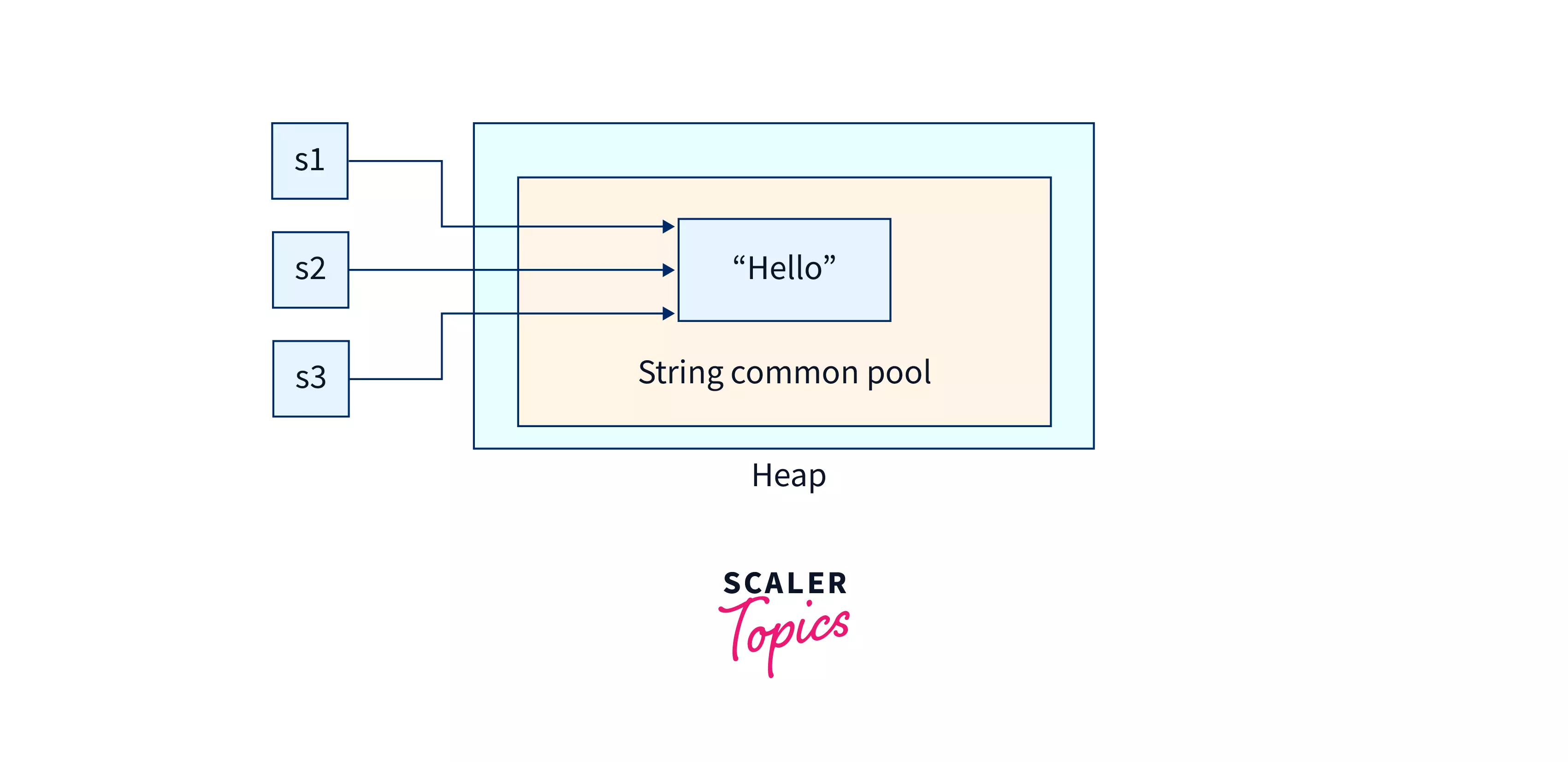Why Are Strings Immutable in Java? Insights right into Memory Efficiency
Why Are Strings Immutable in Java? Insights right into Memory Efficiency
Blog Article
What Is Unalterable Strings and Just How It Functions
In the realm of shows, recognizing the idea of unalterable strings is paramount for creating protected and durable applications. Immutable strings refer to strings that can not be modified after they are developed, ensuring data integrity and predictability within the code.
The Essentials of Immutable Strings
Immutable strings, as a basic principle in programming, are character sequences that can not be transformed as soon as they are created. This implies that when a string is assigned a value, that value can not be altered. In languages like Python and Java, strings are unalterable items, bring about numerous ramifications in regards to memory management and information honesty.
One of the crucial benefits of immutable strings is that they give a sense of security in data control. Considering that the material of an unalterable string can not be customized, it makes certain that the initial data remains intact, decreasing the danger of unintended changes throughout program execution (Why are strings immutable in Java?). This home likewise streamlines debugging processes, as programmers can trust that as soon as a string is defined, its worth will not be accidentally modified
When a brand-new string is created based on an existing one, rather than customizing the initial string, the new worth is stored individually. On the whole, understanding the fundamentals of unalterable strings is essential for mastering programs concepts and enhancing code efficiency.
Benefits of Immutable Strings
Structure upon the protection and efficiency advantages of unalterable strings, their benefits reach enhancing code dependability and streamlining simultaneous shows jobs. By being unalterable, strings can not be modified after creation, which removes the threat of unplanned adjustments in the data they store. This inherent immutability guarantees that when a string is produced, its value stays continuous throughout the program's implementation, lowering the possibilities of bugs triggered by unexpected changes.
Furthermore, unalterable strings contribute to code integrity by making it much easier to reason about the state of a program. Given that strings can not be altered, designers can rely on that a string will always hold the same value, streamlining debugging and upkeep initiatives. This predictability brings about much more secure and dependable codebases.

Application in Programs Languages
Within numerous programs languages, the unification of immutable strings is a fundamental facet that influences how data is handled and controlled within code frameworks. The execution of immutable strings varies across various shows languages, with each language using its own systems to sustain this idea.

On the other hand, languages like C and C++ do not have integrated support for unalterable strings. Designers in these languages should manually execute immutability by applying rules within their code to stop straight adjustments to string things.
Best Practices for Functioning With Immutable Strings
When handling unalterable strings in shows languages like Java and Python, adhering to best practices guarantees protected and efficient information control. One of the crucial finest techniques is to utilize StringBuilder or StringBuffer rather than straight controling strings, specifically when handling substantial concatenation procedures. These courses provide mutable choices for string manipulation, assisting to avoid unneeded memory allowances and boosting efficiency.
Furthermore, when functioning with sensitive information such as passwords or API secrets, it is vital to prevent saving them as plain message in unalterable strings. Utilizing safe storage space devices like char varieties or specialized collections for taking care of delicate details helps mitigate security risks associated with unalterable strings.
Real-world Applications and Instances
Discovering sensible executions of unalterable strings in different markets go to the website reveals their substantial influence on data integrity and system integrity. In the healthcare field, unalterable strings play an important function in ensuring the safety and security and privacy of individual data. By stopping unauthorized adjustments to delicate info such as clinical records and prescriptions, immutable strings aid keep compliance with stringent privacy guidelines like HIPAA.
Monetary organizations also gain from the unalterable nature of strings to improve the security of consumer data and purchase records. Immutable strings assist protect against fraud and unapproved modifications to economic info, giving a robust defense versus cyber hazards and making certain the depend on and confidence of customers.

Final Thought
To conclude, immutable strings are taken care of and stable sequences of personalities that use benefits such as string security and boosted efficiency in programs. They are applied in various programming languages to ensure information stability and protection. Best techniques for functioning with unalterable strings click this site consist of preventing straight modifications and making use of methods that return brand-new string things. Real-world applications of unalterable strings include data file encryption, caching, and string manipulation tasks.
Immutable strings refer to strings that can not be changed after they are created, ensuring information stability and predictability within the code. When a new string is created based on an existing one, rather than modifying the original string, the new value is saved individually.In languages like Java and Python, strings are unalterable by default, implying that as soon as a string things is developed, its value can not be altered - Why are strings immutable in Java?. Ideal methods for functioning with immutable strings consist of preventing straight adjustments and utilizing additional resources methods that return brand-new string items. Real-world applications of immutable strings include information security, caching, and string manipulation tasks
Report this page